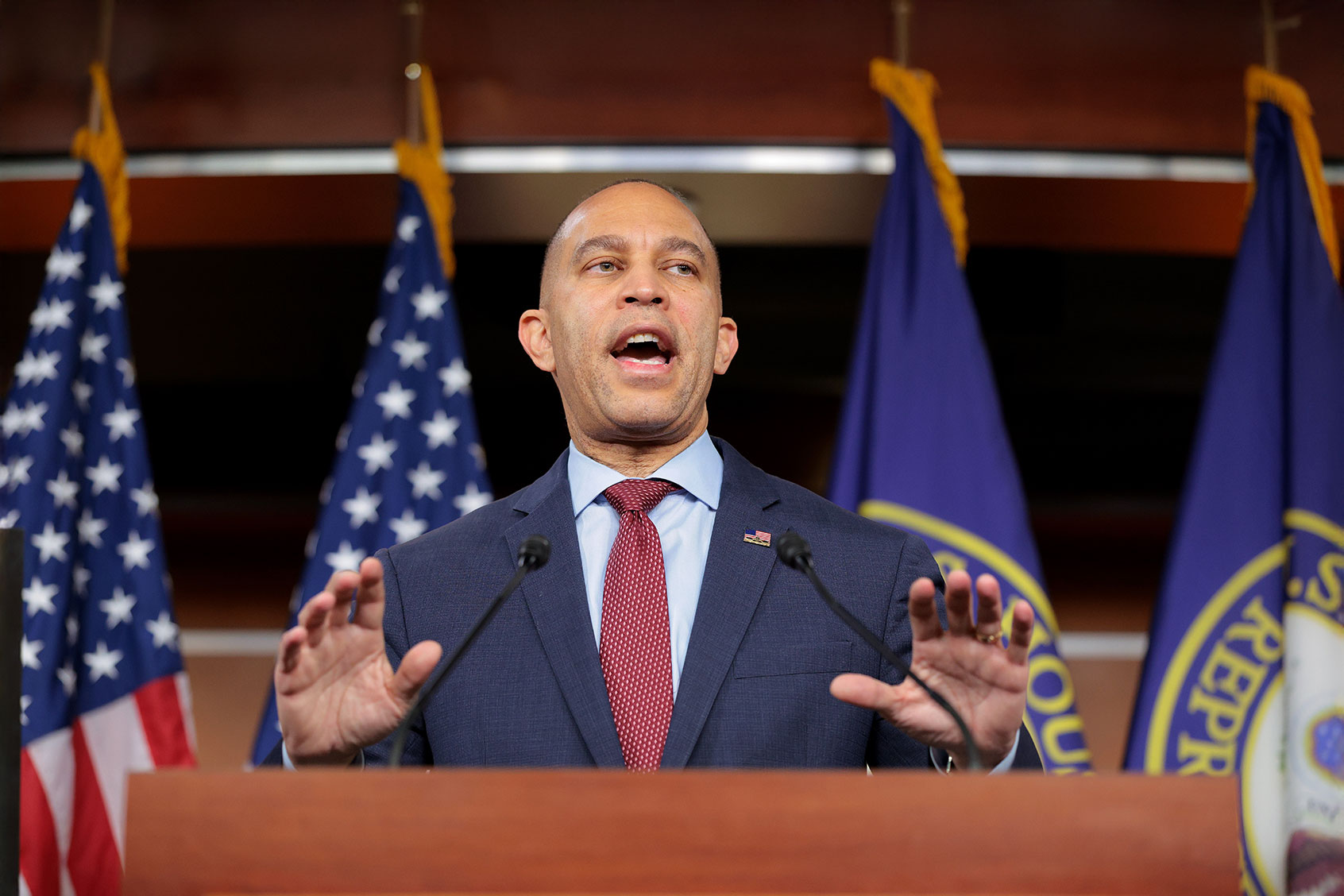House Minority Leader Hakeem Jeffries, D-N.Y, called on President Donald Trump to refrain from using military force against Iran without explicit approval from Congress.
“The authority to declare war belongs solely to the United States Congress,” Jeffries wrote in a statement published Friday. “Aggressive diplomacy resulting in a longer and stronger agreement that permanently halts Iran’s nuclear aspirations is the most appropriate course of action at this time.”
Jeffries’ statement also calls Iran a “sworn enemy of the United States,” and says that it “can never be permitted to become a nuclear-capable power” and that American “commitment to Israel’s security remains ironclad.”
Since Israel first attacked Iran last week, a debate has broken out in Washington about how to respond. Israel and Iran continued to exchange strikes this week, and President Donald Trump has heightened his rhetoric against the Islamic Republic, calling for an “unconditional surrender” and threatening to kill the country’s leader, Ayatollah Khamenei. On Thursday, the White House said that the president would decide whether or not to directly attack Iran within the next two weeks.
Jeffries and others in the Democratic leadership have been under pressure to take a stronger stand against military action.
“Given the gravity of this moment, Democratic leaders should be holding news conferences, addressing mass protests, even bringing Congress to a standstill with all-night filibusters in order to prevent an unauthorized, unjustified war,” progressive journalist Peter Beinart wrote in The New York Times on Friday, hours before Jeffries issued his statement, noting that it was a potential winning issue for Democrats. “The public is deeply weary of conflict. And yet top Democrats are not boldly rallying them against the possibility of another.”
Since the outbreak of the war, there have been efforts in Congress to restrict the president’s ability to engage in hostilities, including a bipartisan War Powers Resolution in the House of Representatives. According to the most recent count, at least 37 lawmakers have signed onto the various resolutions.


